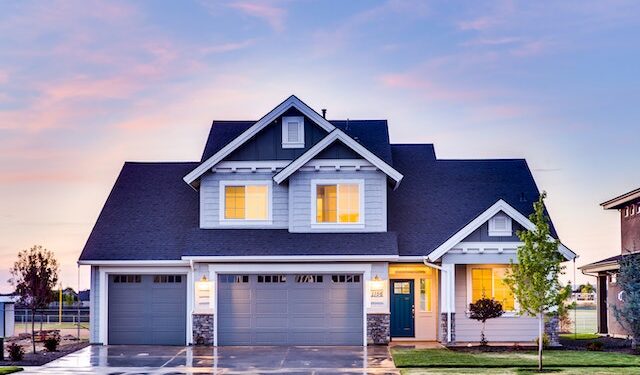Home automation is a way to remotely control the electronics and appliances in your home through apps, voice commands or a central hub system.
A complete smart home setup can be a little overwhelming and require some professional help to set up properly.
Fortunately, there are plenty of affordable complete-package systems that can provide you with everything you need to add intelligence to your house.
1. Consider Your Needs
Home automation is a great way to save time, reduce energy costs and increase the value of your home. By turning your house into a smart home, you can automate lighting, security, entertainment and even HVAC systems.
The first thing to do when choosing a home automation company is to determine your needs. You can do this by taking a walk through your house and note all of the devices you use on a daily basis that you could automate. This can include lights, geysers, coffee machines, fans and ACs, gates and garage doors.
A good home automation company should be able to create a custom solution based on your needs and your home’s infrastructure. They should also offer maintenance services, a variety of software options and a security assessment.
Most people choose a home automation system that combines aspects of entertainment, security and energy savings. However, you can also purchase a system that is dedicated to one aspect of automation. For example, you can get a system that allows you to control your television, lights and climate from a single app.
Several major technology companies specialize in home automation. Some of the biggest are Google, Apple, Amazon and Savant.
Google has a large product line, including cloud computing, hardware, software and digital streaming. The company also offers an excellent virtual assistant ecosystem.
Amazon has a very broad range of products, from music and video to consumer electronics and appliances. Its Alexa platform is a great choice for those who want to have their own home assistant.
A good home automation system should be easy to use and operate. It should be compatible with other home devices and sensors and should be able to communicate wirelessly. It should also provide remote access and monitoring.
2. Consider Your Budget
Home automation is one of the most popular trends in technology and home improvement right now. The technology allows homeowners to control nearly every aspect of their homes through an app on a mobile device. This includes lighting, door locks, thermostats, cameras, and other systems.
Many smart home companies offer bundled packages that give you the best value for your money. However, it is important to choose a company that will fit your needs and budget.
You should also consider your future plans for adding devices to your system. For example, if you plan on using Amazon’s Echo, it will be important to pick a home automation system that integrates with Alexa.
Some systems allow users to add devices to the system as they are purchased. This is helpful for those who are looking to save on upfront costs, but want the ability to buy additional devices down the line as they become more popular.
Before you begin shopping for your next home automation system, take a walk through your house and note all of the things that you use frequently. This will help you narrow down what you need and choose a configuration that works well for your family.
The most cost-effective home automation systems will allow you to control all of your appliances through an app on a smartphone or tablet. These systems can also be used to monitor your home’s energy usage and security status from a remote location.
Before you open your own home automation business, it is important to review local building codes and zoning requirements. These regulations can impact your ability to provide services in your local area and require you to obtain a business license and insurance.
3. Consider Your Lifestyle
Choosing the right home automation company is a critical decision. It will determine the quality of your smart home experience and how well it fits your lifestyle.
The first step to choosing a home automation company is to consider your needs and budget. Once you have a clear picture of what your home automation needs are, you can begin shopping for the best systems and devices to meet those needs.
For example, you may choose a wireless system that uses a smartphone or tablet to control your appliances. Or, you might opt for a more traditional power line system that uses a wiring connection between your appliances and your home’s central control unit.
Many smart appliances, like smart lights and thermostats, can be controlled via voice commands or scheduled to turn on or off at specific times. These features are great for saving energy and ensuring that you don’t forget to adjust them throughout the day.
While many of these features are available on the cheaper end of the home automation market, they can still be pricey. Some of the more advanced systems may require a professional installation and monthly service charges, so it’s important to factor that into your budget.
In addition, the price of a home automation system can vary depending on the type of hardware that you purchase and the installation company that you use. For instance, a wired system can be very expensive to install, while a wireless one is relatively inexpensive and will usually come pre-installed.
When you consider your lifestyle, you’ll be able to find the home automation company that is best for your needs. After all, you want a system that is convenient and easy to use, and will help make your life easier.
4. Consider Your Home’s Architecture
Whether you’re considering a DIY home automation setup or a full-scale smart home system, you want to choose a company that has an excellent reputation for providing a wide variety of quality devices and services. That way, you can rest assured that you’ll get the best value for your money.
Fortunately, there are a number of home automation companies to choose from. Each one offers something unique to the home automation market, so it’s important to take the time to find a company that fits your needs and lifestyle.
Home automation systems also vary in how they are designed and installed. Some are self-installed, while others require a professional installation.
While it’s true that there are many DIY options available, many homeowners prefer to have professionals install the devices and services. This gives them peace of mind and the ability to easily change their settings as needed.
Another important factor to consider when choosing a home automation company is their history of installing the devices you need. Look for a company with a proven track record, and check out their website to get an idea of the type of homes they’ve worked on previously.
It’s also a good idea to find a company that has a showroom. This will allow you to see the products you’re looking at in action, and it can be a great way to get an idea of what your home might look like with an automated system.
Depending on your budget and lifestyle, you may be able to build a comprehensive system that covers everything from lighting to climate control to security. However, if you’re looking for more flexibility and ease-of-use, it might be better to start with a simpler, scaled-back setup that meets your needs and doesn’t overburden your home.
5. Consider Your Security Needs
When you’re looking to add automation technology to your home, you may want to consider the security aspects of the product. Many of these systems can include features that improve your safety, such as a door lock system and surveillance cameras that can help deter intruders.
These devices can also help you monitor your home in real-time if you’re away from home or on vacation. For example, you could set up motion detectors and door and window sensors so that you can get notifications when people are entering or leaving your home, even if you’re not there.
Aside from safety, a home automation system can save you money by using energy more efficiently. For instance, it can adjust the temperature of your home, which can help you avoid wasting money on heating and cooling costs.
Additionally, you can use a home automation system to control your small appliances and lights so that they’re only used when you’re there or turn them off at a specific time. This will help you save money on your utility bill and also make it easier for you to keep track of what is and isn’t turned off in your home.
It’s important to choose a system that collects and stores only as much data as is necessary for its operations – this can help ensure that it’s secure against cyberattacks.
It’s also a good idea to read the privacy policy of the company you’re considering. This will give you an idea of how much personal information they collect from your devices and how that data is shared.









